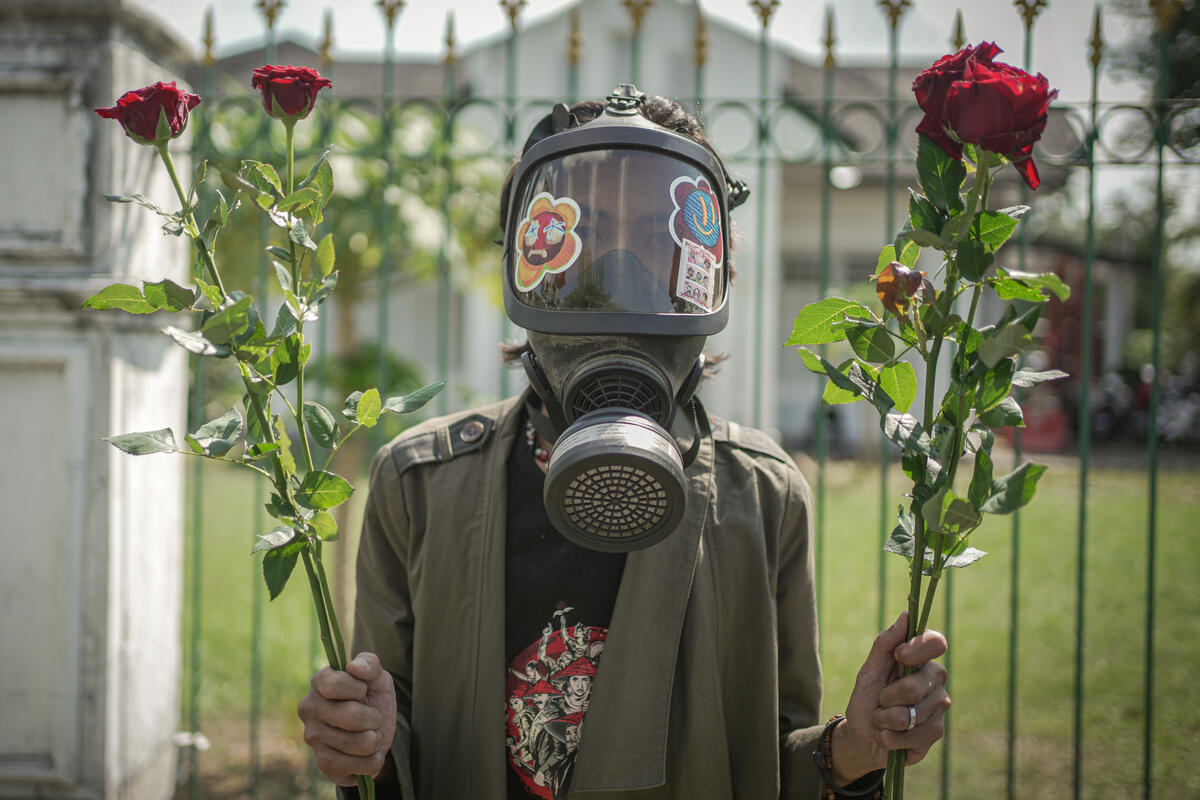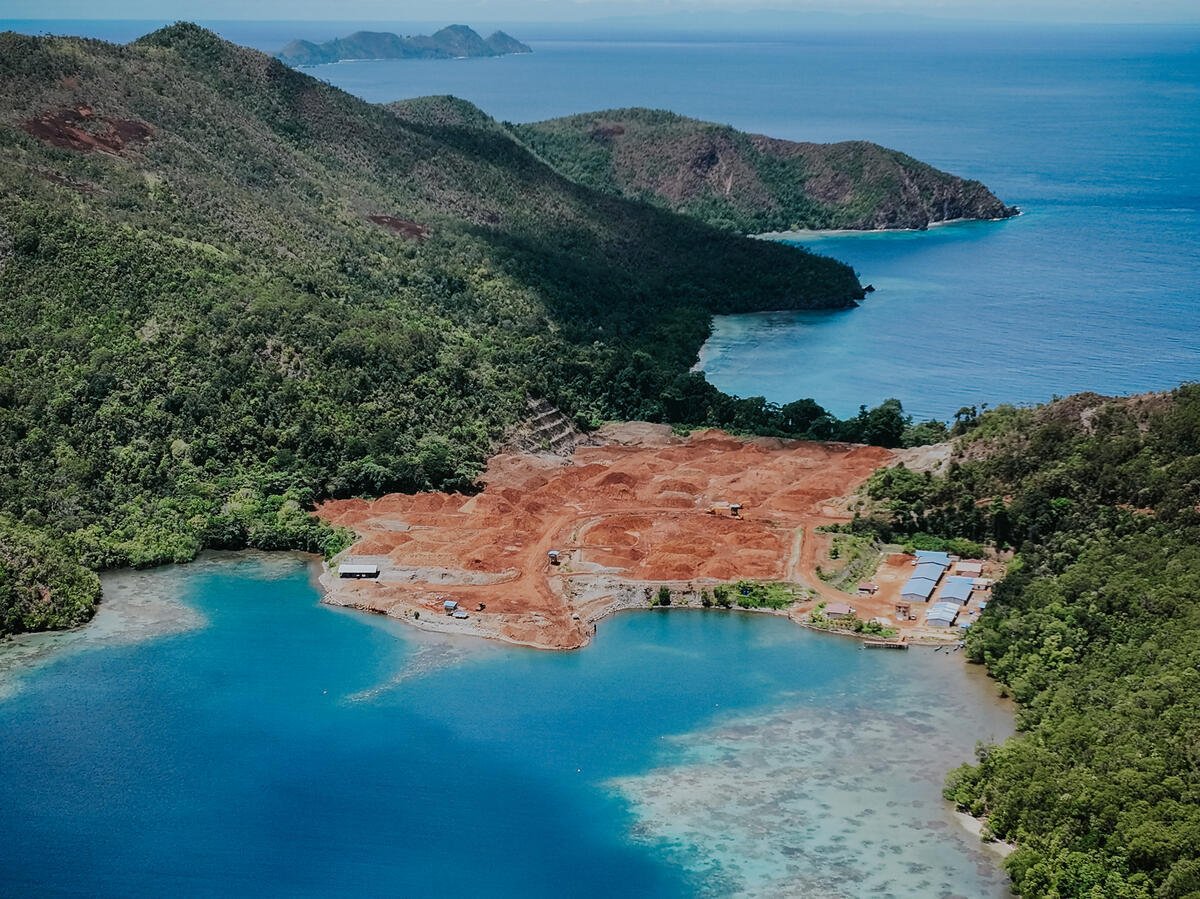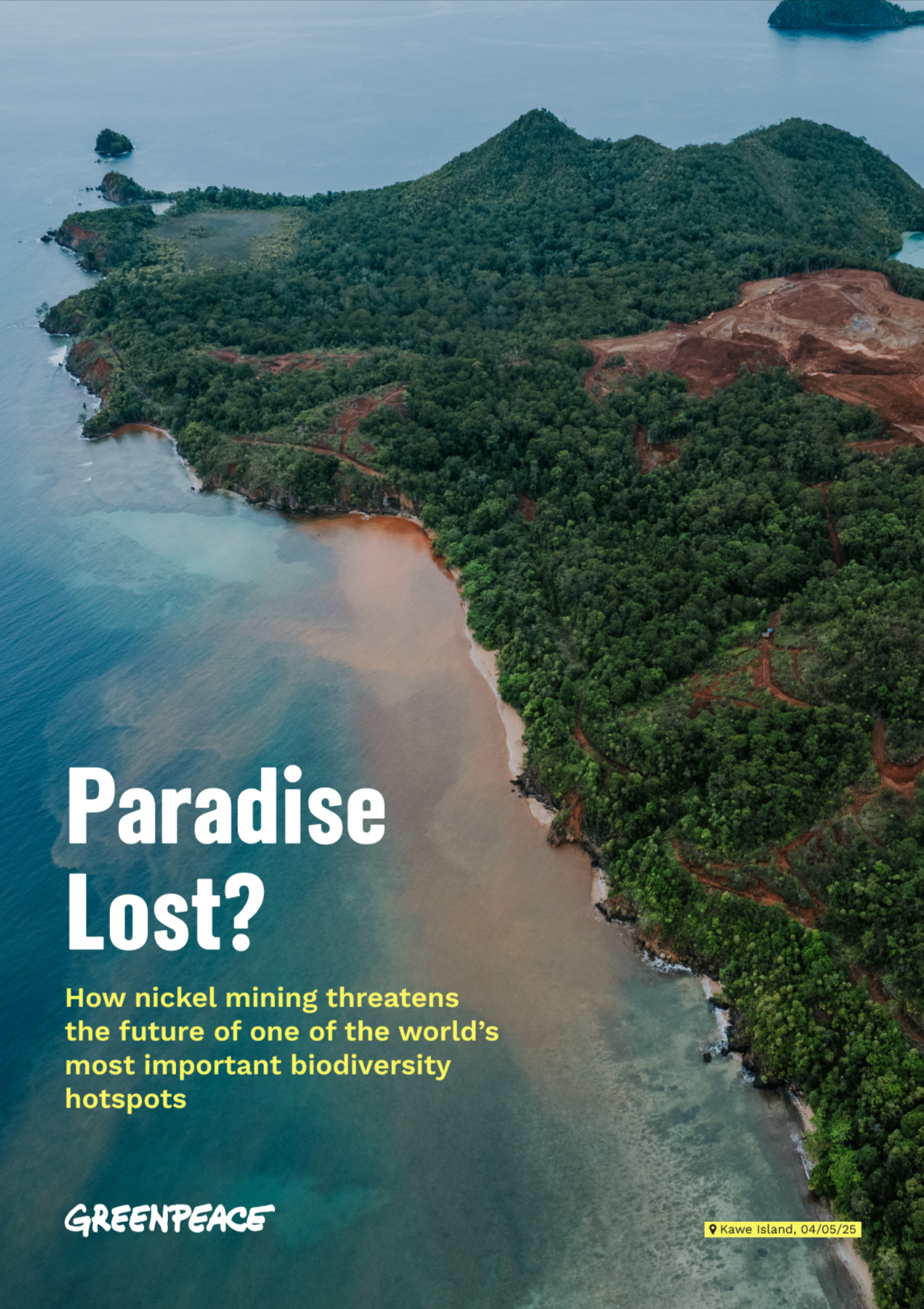It was not until I went on a field trip to the traditional lands of the Auyu People (also written as Awyu in Bahasa) last June that I got a proper education about one of Indonesia’s ethnic groups and their way of life in the remote forests of West Papua, close to the border of Papua New Guinea. The village I visited, Yare, is located in Boven Digoel district. To get there, I embarked on a seven-hour trip that entailed riding a longboat, motorcycle, and a motorised canoe known as ketinting.

The village is richly forested, constantly threatened by land grabbing and deforestation linked to plantation companies. With support from Greenpeace Indonesia, Pusaka Bentala Rakyat Foundation, Papua Legal Aid Institute, and other NGOs, members of the Auyu have launched several legal actions to defend their forest homeland from companies seeking to clear their land for profit. With four other colleagues from Greenpeace Indonesia, I went there to bear witness and document the Auyu and their special relationship with the land.
The Journey
We set off from the port town of Tanah Merah on the Digoel River, one of the world’s last great free-running ‘wild’ tropical rivers, that winds unimpeded 853 kilometres southwards from Papua’s mountainous spine down to the Arafura Sea. Boarding a longboat, we rode downstream for the best part of an hour until we reached Ampera, where we took a turn into a tributary before stopping at the riverbank.
Then, surprisingly, came the hardest part of the journey: a two-hour motorcycle ride to cross overland from Digoel to the Mappi River at Fofi. For most of the 42-kilometre route, our bikes lurched and slid across the muddy red dirt road. Thankfully, it had only drizzled that day.

We reached Fofi in the afternoon and hopped on a small ketinting down the Mappi River to our final destination- Yare Village. An hour and a half aboard the canoe gave me an eerie feeling. Perhaps it was the denseness of the surrounding forests dwarfing the ketinting and creating echoes of the engine. We were told by Hendrikus ‘Franky’ Woro, an environmental defender and leader of the Woro clan of the Auyu people, that crocodiles abound. Fortunately, not one of them made an appearance that afternoon.

A Village Greeting
It was almost dusk when we arrived at Yare Village. To our surprise, the Auyu from two nearby towns were also gathered there. With their shields and bows, the men and women covered with traditional body paint and wearing bird of paradise headdresses greeted us with their customary welcoming dance.
As the Auyu women sang, we could discern the words “a team from Jakarta” from the lyrics. We found out later that Veronika Sifi, an Auyu woman, created the song, especially for our visit. The song mentioned our team’s purpose- to help them defend their land. It was a lovely song but laced with sorrow as it mentioned the threats hanging over their lands.

We stayed in Yare Village for five days to document their traditional way of life and their deep relationship to nature- their dependence on forests, rivers, swamps, and other natural resources for their livelihood.
To the Auyu, the forest is like an ‘eternal bank account’. The forest provides for their every need- from food and medicine to their traditional clothing and building materials- and clearly entwined with the Auyu’s cultural identity.

We joined the Auyu women to collect and process sago– the staple food for most lowland Papuan communities.
Aside from rainforests, the wetlands also play important roles in the traditional economy of the Auyu people. Instead of wells, the Auyu get their water from rivers or wetlands to be used for cooking, drinking, and bathing. They say they do not need to boil water collected from the nearby rivers and can drink it safely straight away.

On the third day of our visit, we followed the Auyu deep into their customary forest area that has fallen under the shadow of a government-issued concession for clearance to make way for an industrial palm oil plantation. Unfortunately, this is not an isolated case. Many indigenous lands in Papua are now under threat from the industry, with almost a million hectares of forest land released for plantations since 2000, according to Greenpeace International’s report License to Clear: The Dark Side of Permitting in West Papua.
It was a three-hour trek through the pristine rainforest, teeming with biodiversity. As we walked, our Auyu friends explained the versatility of the trees we encountered along the way and their significance in their daily lives.

Take for example, the Nibung tree. Its frond spines can be woven into mats; its trunks are used as floorings of Auyu houses. Its bark is medicinal and can be used as cough medicine. The leaves are usually used for lining bivouacs and wrapping up sago. The shoots are edible as vegetables or processed to be Papuan salt. The peeled shoots can be eaten right away as snacks. I tried some – it tasted sweet, like good coconut meat.
We came home with a piglet that the Auyu had caught while they were hunting during the trek.
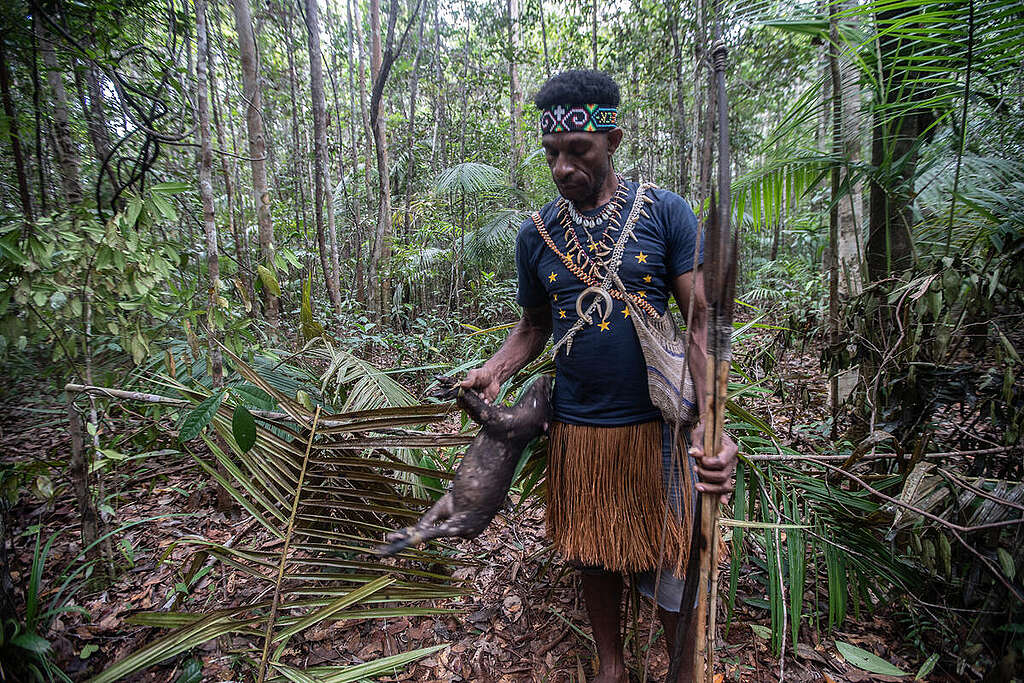
The Fight
Determined to fight for their forest homes, the Auyu people found themselves going on a long journey to the Papuan capital to take palm oil companies to court. On March 13, 2023, Franky Woro filed an environmental and land rights lawsuit at the Jayapura Administrative Court, calling for the revocation of a government permit issued to Malaysian-owned palm oil company PT Indo Asiana Lestari.
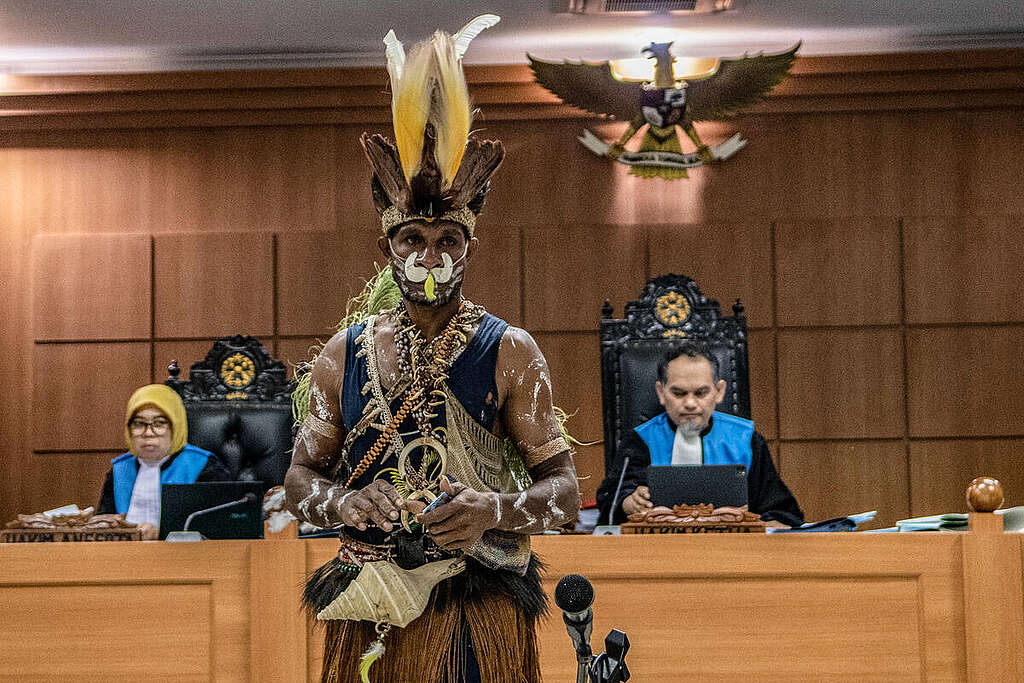
Two months later, Franky also gave evidence in support of six other Auyu environmental defenders who intervened in two cases filed by PT Megakarya Jaya Raya and PT Kartika Cipta Pratama at a Jakarta administrative court. The two palm oil companies– whose concessions are located in the same landscape as PT IAL– are appealing a decision by the Minister of Environment and Forestry to revise the release of state forest area for plantation use.
With hearings taking place in distant Jayapura and Jakarta courts, these Auyu warriors have steeled themselves to endure repeated long journeys away from their villages. Yes, undertaking the same grueling journey that my team and I took.

For the Auyu, defending their forest lands in cold courtrooms might be their last recourse to protect their homes and livelihood- to preserve their culture and way of life.
It is vital that their voices be heard, and they need our support. Winning this fight will also benefit the rest of us. As one of the largest and richest rainforests left in the world, the Papuan forest is one of our best defenses against the twin crisis impacting our climate and biodiversity.
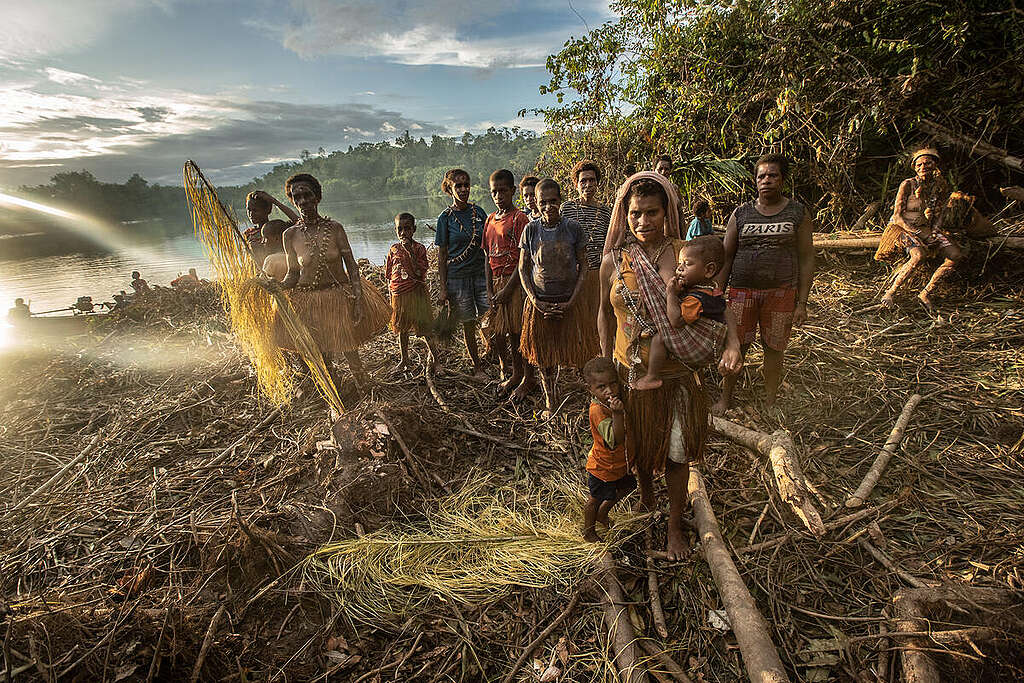
Together, let us stand with the Indigenous Auyu for the sake of people and planet.
Budiarti Putri is a Communications Campaigner at Greenpeace Indonesia

